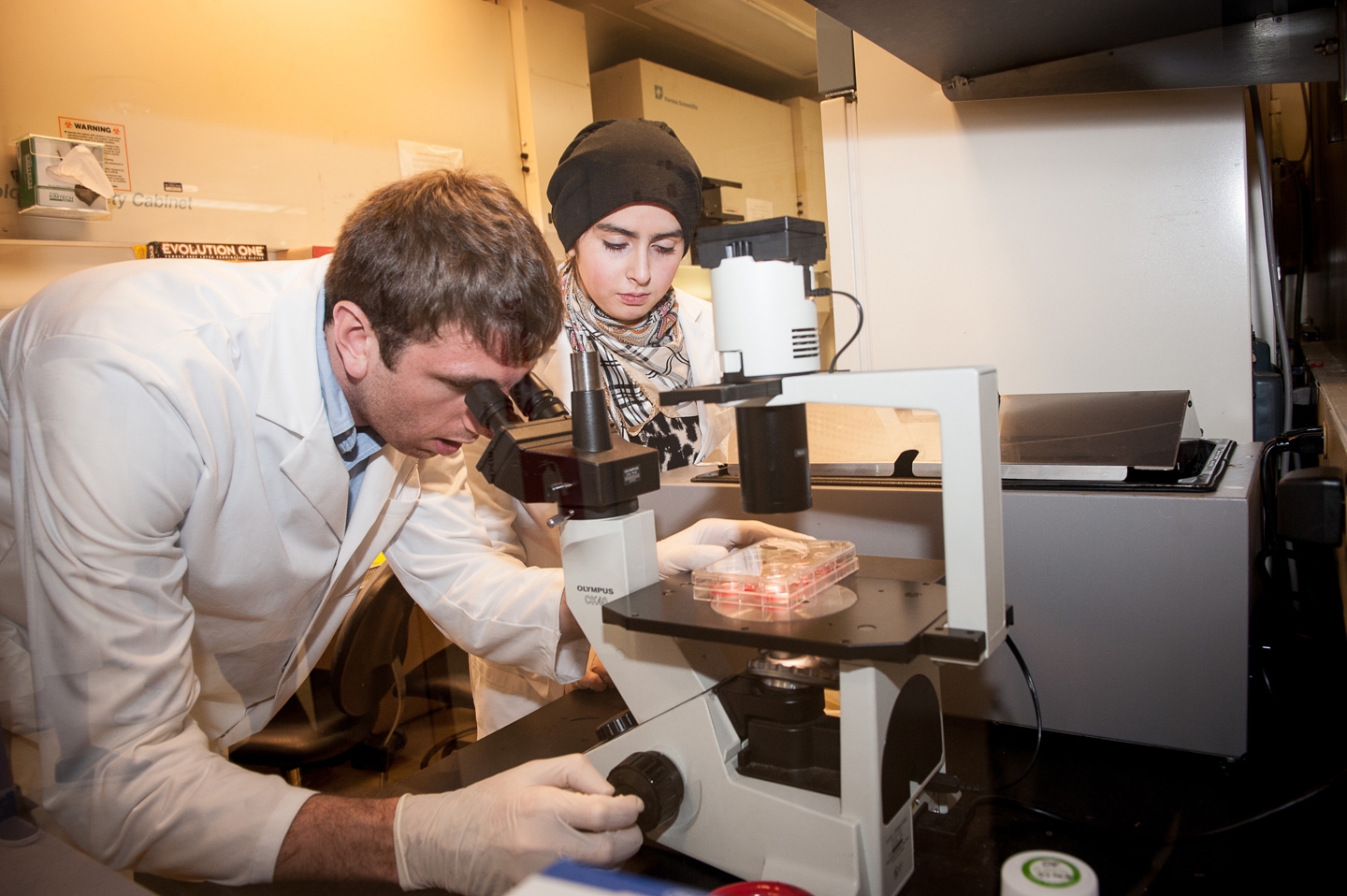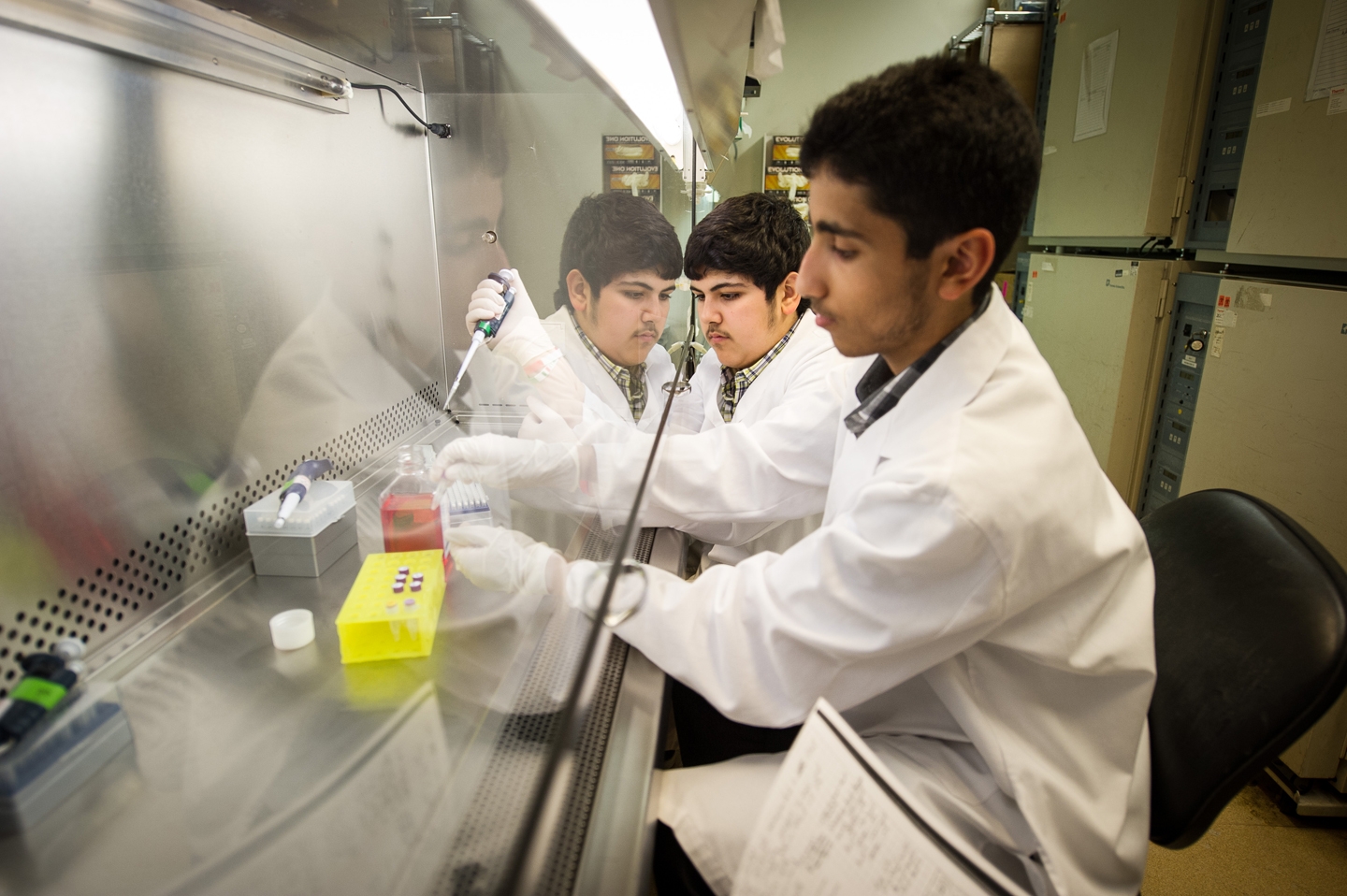Standing before the faculty of the Department of Genetic Medicine at Weill Cornell Medical College, three Qatari high school students outlined all they had accomplished over the last two weeks: differentiating cell types, culturing cell lines, performing a DNA restriction digest and transfecting cells with a reporter gene — among a half-dozen other scientific and laboratory techniques.

Weill Cornell researcher David Havlicek with scholarship winner Hessa Khalid Al-Hail. Photo credit: Amelia Panico
The three students — Hessa Khalid Al-Hail, Ali Mohsen Hajji and Hamad Nasser Al Naimi — were this year's winners of Weill Cornell Medical College in Qatar's Doctors of the Future Scholarship. Each year, scholarship winners are given a fully funded, two-week trip to the lab of Dr. Ronald Crystal, chairman of the Department of Genetic Medicine. There, they learned about laboratory procedures and the scientific method from physician-researchers at Weill Cornell Medical College and NewYork-Presbyterian Hospital.
Students are awarded the Doctors of the Future Scholarships based on an annual essay competition open to all high school students throughout Qatar. This year's essay topic was on the history and future of medicine in the country. Separately, each of the students wrote about the changing face of health care in Qatar, from the practice of traditional herbal medicine through the introduction of modern technology in the last 25 years and, finally, to the future of medicine in the next 50 years as planned by Her Highness Sheikha Moza bint Nasser, chairperson of Qatar Foundation for Education, Science and Community Development as well as serving as a member of the Weill Cornell Medical College Board of Overseers.
"The Sheikha's influence is huge in medicine, she has a whole vision for 2030," said Hajji, who attends Qatar Academy in Doha and learned about the Doctors of the Future Scholarship program from his brother, a previous scholarship winner.

Two of the scholarship winners, Ali Mohsen Hajji, back, Hamad Nasser Al Naimi, front. Photo credit: Amelia Panico
During the course of their two-week visit, the students toured three labs and two patient care units, including NewYork-Presbyterian Hospital's medical intensive care unit.
In the labs, students worked with two main cells lines, A549 and 293HEK. One of the primary experiments was the introduction of a reporter gene into a cell line and then testing and identifying the expression of the newly introduced gene.
"We had embryonic kidney cells and we transfected these cells with a gene that codes for GFP (green fluorescent protein). And we added also a PEI (polyethyleneimine), which helps DNA get into cells, and then we viewed the cells under green laser," said Al-Hail, who attends high school at the Al-Bayan Educational Complex for Girls in Doha.
"You all did a great job and we thank you so much for joining us," Dr. Crystal, the Bruce Webster Professor of Internal Medicine, professor of medicine and professor of genetic medicine, told the students at the end of their two-week trip. "I hope it was a good experience for everybody; it was our pleasure to host you."
All three students said they plan to become physicians. As they prepared to return to Qatar, each said they would continue working towards enrollment at a top medical college, and they were grateful for the time they had learning about the profession from investigators and physicians at Weill Cornell.
"We really enjoyed working with each of you," Hajji said.

